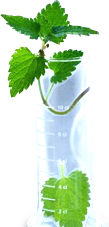



Author(s): Priya Pandey*, Ankita Tripathi, Dolly Nirwan, Salman Khan
Peptic ulcers are a broad term that includes ulcers of the digestive tract in the stomach or the duodenum. The formation of peptic ulcers depends on the presence of acid and peptic function in the gastric juice and the deterioration of mucosal defense. Two major factors can disrupt the mucosal resistance to injury: non-steroidal anti-inflammatory drugs (NSAIDs) example, aspirin, and Helicobacter pylori infection. Numerous natural products have been evaluated as therapeutics for the treatment of a variety of diseases, including peptic ulcers. There has been a considerable pharmacological investigation into the antiulcer activity of some compounds. In this work, we shall review the literature on different medicinal plants and alkaloids with antiulcer activity. This article reviews the anti-peptic, gastro-protective, and/or antiulcer properties of the most commonly employed herbal medicines and their identified active constituents. The best goals for the treatment of peptic ulcer disease are to reduce pain, heal the wound and delay the recurrence of ulcers. About 70% of patients with peptic ulcer disease are infected by Helicobacter pylori and eradication of this microorganism seems to be curative for this disease. This article reviews drugs derived from the medicinal plant more commonly used in the world for peptic ulcers and, if reported, the antiulcer activity. This article will be concerned only with the antiulcer and gastro-protective effects.